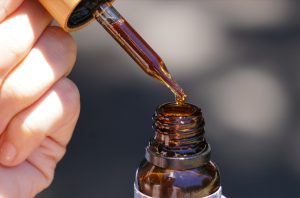Uncategorized
Beyond THC: The Rise of cbd versus cbg in Natural Health Solutions
The cannabis plant contains two types of cannabinoids: cannabigerol (CBG) and cannabidiol (CBD). While CBG may benefit those with multiple sclerosis, CBD has demonstrated potential in the treatment of anxiety. Both may be useful in the treatment of specific inflammatory and neurodegenerative diseases.
Cannabinoids are among the several physiologically active substances found in cannabis. This plant contains two nonpsychoactive compounds: CBD and CBG.
Oral administration of these two chemicals results in their interaction with the body’s cannabinoid receptors. These receptors are a component of the endocannabinoid system and the neurological system.
This system is involved in the perception of pain, memory, and appetite, among other bodily functions.
What CBD and CBG are, their legality, and their medical uses are all explained in this article.
Exploring CBD versus CBG: Understanding the Key Components of Cannabis

The herbaceous plant known as Indian hemp, or Cannabis sativa (C. Sativa), is indigenous to central and western Asia. C. Sativa is commonly referred to as cannabis. People grow this plant for its medicinal properties as well as for its natural textile fabric, hemp.
About 80 of the more than 400 chemical components found in C. sativa are thought to be physiologically active, according to a 2022 articleTrusted Source. Cannabinoids are the most important components in cannabis.
Tetrahydrocannabinol (THC) is the primary psychoactive cannabinoid found in cannabis. CBD and CBG are two other known cannabinoids found in cannabis.
CBD
One type of cannabinoid found in cannabis plants is called CBD. Although it is psychoactive, it does not provide the “high” that many people associate with cannabis use, unlike THC.
According to imaging studies, CBD can significantly alter patterns of brain activity and connection.
Additionally, studies indicate that CBD may help patients with a number of medical conditions, including
anxiety disorders linked to inflammation
neurological illnesses, including Parkinson’s and Alzheimer’s
CBG
Another type of cannabinoid found in the cannabis plant is CBG. The compound binds to the same brain receptors as CBD, which is how it functions.
Research on CBG is expanding, even though there is currently more study on the effects of CBD on humans.
According to certain research, CBG may have therapeutic use in the following conditions:
Huntington’s illness
Parkinson’s illness
IBD (inflammatory bowel disease) and multiple sclerosis
Deciphering the Contrast: CBD versus CBG

The primary distinction between the two is that, whereas CBG is a moderate cannabinoid from a trusted source, CBD is a big cannabinoid. Accordingly, CBD is typically present in larger concentrations in cannabis than CBG.
Additionally, the two exhibit dissimilarities in their responses to the body’s cannabinoid receptors.
Interactions between CBD and CBG in the Body
The way that CBD and CBG interact with your body is unique. The endocannabinoid system is a system in your body (ECS). This system aids in maintaining equilibrium in both your physical and emotional states.
CBG can attach itself to CB1 and CB2 receptors, which are components of this system. When it does so, it may improve brain function and prevent excessive pain or swelling in your body.
CBD interacts with the ECS in a different manner than the ECS. Unlike CBG, it does not bind to the receptors. Instead, your body uses more of its own endocannabinoids when CBD is used as a gentle guide. Accordingly, CBD can help reduce tension, induce relaxation without putting you to sleep, and ease pain without making you feel “high” like THC does.
cbd versus cbg: Typical Uses

After comprehending the physiological interactions between CBG and CBD, it’s critical to understand their typical applications. It is well known that both substances have potential medical advantages. CBG is a well-liked option for people looking for cognitive support because it has been particularly connected to positive benefits on focus and concentration.
These two hemp plant allies complement one another quite well, amplifying each other’s beneficial effects!
Conversely, CBD is well known for helping to support healthy inflammatory processes, mood control, and stress reduction. Both CBG and CBD provide non-intoxicating qualities without the THC-induced “high.”
According to research, these cannabinoids may have therapeutic effects without affecting mood or perception, which makes them attractive choices for people looking for natural cures.
While CBG and CBD both have their own advantages, they also work in concert to enhance each other’s beneficial qualities without having the same euphoric effects as THC.
The Health Advantages of CBD and CBG
While CBD is frequently used for pain management, stress and anxiety alleviation, and sleep management, CBG has demonstrated promise in the treatment of cancer and as an antibiotic. Due to its various health advantages, both cannabinoids are well-liked by people looking for natural solutions.
CBG for Antibiotic Use and Cancer Treatment

CBG is a viable alternative for the treatment of cancer since it appears to be able to combat cancer cells. In research on colon carcinogenesis and colorectal cancer, it has proven to have anti-cancer qualities.
Furthermore, CBG has antibacterial qualities that could aid in the fight against germs that are resistant to antibiotics, such as MRSA (methicillin-resistant Staphylococcus aureus). These results imply that CBG may play a crucial role in the creation of novel antibiotics that combat bacterial illnesses that are resistant to conventional treatments.
These preliminary findings suggest that CBG has potential in the fight against antibiotic resistance and cancer, even though additional research is required.
CBD for Pain Management, Sleep, and Anxiety & Stress
Because of its possible advantages in reducing stress, anxiety, and insomnia, CBD has grown in popularity. According to research, CBD may be able to lessen the symptoms of PTSD, social anxiety disorder, and generalized anxiety disorder.
Furthermore, by lowering insomnia and enhancing REM sleep patterns, CBD exhibits potential in fostering higher-quality sleep. Furthermore, the anti-inflammatory qualities of CBD may help to relieve chronic pain brought on by diseases like neuropathy or arthritis.
Additionally, a lot of consumers say that CBD keeps them from feeling sleepy during the day and helps them manage their stress levels. It is thought that CBD affects mood control via interacting with serotonin receptors in the brain, while the precise mechanisms are still being investigated.
In summary
In conclusion, it’s critical to comprehend the advantages and distinctions between CBG and CBD in order to make wise decisions. While CBD supports regular inflammatory function, mood, and stress, CBG is well-known for its ability to improve concentration and focus.
These non-euphoric cannabinoids have medicinal effects without affecting perception or mood. Although further investigation is necessary to completely understand their impact, they provide encouraging prospects for natural wellness remedies.
Knowing the distinct benefits of CBD oil will help you make educated decisions about your health as you traverse the world of CBD oil.
References:
Footprints to Recovery. (n.d.). CBG Vs CBD: Understanding the Key Differences and Benefits [URL]
Footprints to Recovery. (n.d.). What is the difference between CBD and CBG?[URL]
Accessed,May. 06, 2024.


